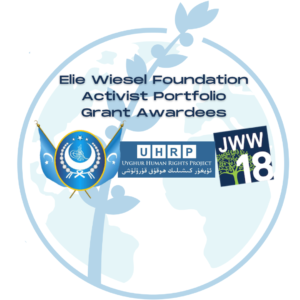As she entered the room, my eyes froze on her scarred and disfigured face. Skin melted like a plastic mask. I winced and a pain shot through my heart. I instructed my eyes to move off of her face; but where should they go? On their own, my eyes darted to her arms bound in gauze, and then to her hands, charred, de-pigmented. What should I do with my eyes? I forced them to move away from her damaged parts. My heart was racing. I closed my eyes for a moment, and when they reopened, I saw it there, right in front of me. She was wearing my favourite blouse. It was Carole Little’s collection from 1982, the year I graduated law school. I bought a whole collection of lawyer clothes. And then, a decade or more later, when shoulder pads were passé, I donated the blouse (and the suit that it matched) to some rummage sale. Funny, I have thought of that blouse on many occasions. I loved the wide shoulder pads, the floral design and the beautiful rust and red tone colors. I never thought I would see that blouse again … and now, here it was sitting in front of me, worn by Renee, a woman about whom I knew nothing, yet I thought I could tell almost everything just from looking at her face.
Renee told us of the day in 2005 that the Interahamwe militia came into her village, guns blazing,  entering home after home gang raping the women and setting the houses ablaze. They entered her home and threw her crying baby against the wall. Renee was then raped sequentially by seven men while her 1 ½ year old lay motionless on the floor and her 5 year old son stood in the corner. After the rapes she gathered her babies and hid under the bed hoping that the nightmare would end. She then smelled fire and saw that her home was ablaze. She became separated from her children in the frenzy of the burning village. It took years for her to find out that her baby was dead and that her older son was alive and in her village. This is just the beginning of her story.
entering home after home gang raping the women and setting the houses ablaze. They entered her home and threw her crying baby against the wall. Renee was then raped sequentially by seven men while her 1 ½ year old lay motionless on the floor and her 5 year old son stood in the corner. After the rapes she gathered her babies and hid under the bed hoping that the nightmare would end. She then smelled fire and saw that her home was ablaze. She became separated from her children in the frenzy of the burning village. It took years for her to find out that her baby was dead and that her older son was alive and in her village. This is just the beginning of her story.
Her nightmare continued as she ran from the village. Her body burned to a crisp, her organs destroyed from the rapes, yet finding no one who would help her or take her in, as she was suspected of being Interahamwe. This wandering, unaided, went on for months and months, interrupted by only occasional acts of mercy, which kept her alive. Often she was given food, but had no use of her hands so she was starving. She could find no one to put the food into her mouth. Once she tried unsuccessfully to kill herself, wishing nothing but to end her misery. Then, miraculously, Renee was guided to the Heal Africa Hospital where she has lived for the past 4 years, enduring more than 7 surgeries for her burns and fistula repair. She expresses her profound gratitude to Heal Africa because she is better now – now she can use her hands. She even hopes that one day she can go back to her village.
We cried together; there was nothing either she or we had to give at that moment, but tears. The tears were unending and came from the most sorrowful place where only despair resides. After an hour of sitting together, my swollen eyes settled comfortably on Renee’s face, which I now found to be quite beautiful. My life and Renee’s are as distant as two women’s lives could be. Two lives, so different…wearing the same blouse at different times and in such different places.


